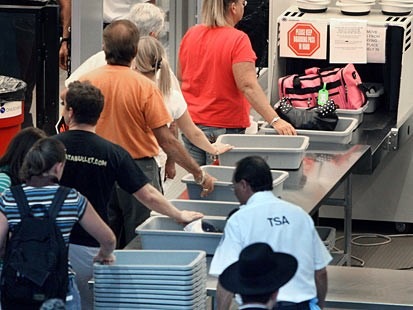
Boston Globe
With Scott Brown having won, Democrats will have the same Senate margin they had this time last year, 59 votes. We all now know that the Senate has chosen to adopt procedures that hamstring it. So Democrats will have to get tougher and smarter if they want to get anything done. I don't believe even the Senate can be tied up forever by a minority IF the majority actually wants to do anything. The Dems problem is that it is not clear they'd rather do anything more than posturing in divergent directions. No wonder there is an enthusiasm gap.
Losing a Massachusetts statewide election to a Republican wouldn't be quite such a shock if folks remembered more of the state's political history. Though Kennedys owned the turf, the state elected Republican governors from 1991 through 2007. Obviously there is a Republican base there.
I haven't worked politically in Massachusetts since walking precincts for Fr. Robert Drinan in 1970, but a contentious post from Al Giordano today rings true for me as a political junkie who observes the Commonwealth frequently.
I might put that a little more generously: Massachusetts often feels as if it had two Democratic parties. One is traditional, white, Catholic, and working class, at least culturally. These folks gave Hilary Clinton her huge victory in the 2008 primary in the state. The other Democratic party is more urban, black and brown, gay and also catches up the mostly white "cultural creatives" who tend cluster in educational centers and technology hubs. Neither set much likes "dumb wars," the former because their kids get killed in them, the latter because they reject U.S. imperial over-reach. Sometimes these folks get going in the same direction; then they overwhelm the exurban, mostly white, mostly libertarian-oriented Republicans.Truth is, Massachusetts' reputation as a progressive electoral bastion – dating back to 1972 when it was the only state to support Democrat George McGovern against President Richard Nixon (leading to a plethora of bumper-stickers that said, "Don’t Blame Me, I’m from Massachusetts") – is undeserved. ... Its capital city of Boston is the most segregated major city, racially speaking, perhaps in the United States. (And it was the Far North bastion of opposition to public school integration long after the Deep South had stepped into the future.)
Which is why Governor Deval Patrick's 2006 gubernatorial triumph was a big step forward for the Bay State electorate.
But the Massachusetts Democratic primary [base] electorate is one inordinately influenced by State House hacks in one corner and politically-correct practitioners of "identity politics" activism and such in the other, and regularly in the dysfunctional push-and-shove between the two, the Massachusetts Democratic Party falls so out of touch with the public that it takes a big electoral hit.
Though Barack Obama had no trouble blasting to victory in Massachusetts in November 2008, the state's configuration of Democratic factions is not his essential coalition. Bush's dismal record of failure, the economic implosion, and a national yearning for change made his big win possible for Obama -- as I wrote two years ago --
Today in Massachusetts the stress points in that coalition showed themselves again. Coakley won in Boston and the parts of Western Mass where she should have won, but not by as much as she needed. Very likely the fissures in the Democratic coalition will show up again nationally next November unless the White House political operation can figure out how to put Humpty Dumpy together again. It's a tough job, since Humpty Dumpty is only barely out of the fetal stage.... to birth a national coalition ... which doesn't quite have a secure demographic base, though such a base seems visible on the horizon.
If the White House decides to understand its weakness as pushing too hard too fast (as mainstream media and the Republicans will push them to) expect a blood bath for Democrats in November. Obama got to office by selling a vision of dynamic movement forward; his coalition is fragile when mired in inactivity. It just barely exists on its best days. It's still trying to be born, to come into its own. It withers when left to lie around, waiting for politicians and political fights formed in a different U.S. era to get themselves moving."If Scott Brown wins tonight he'll win because he became the change-oriented candidate. Voters are still voting for the change they voted for in 2008, but they want to see it. And right now they think they've got economic policies for Washington that are delivering more for banks than Main Street."
... Lake said that the problem for Democrats is that voters are blaming them for the nation's poor economic conditions. "2010 is fast turning out to be a blame election and I think that either we are going to characterize who deserves the blame - whether that's banks and lobbyists and people who still want to hold on to national Republican economic strategies - or we're going to get the blame. And that's a very different tone than, often, the administration is comfortable with," she said.
The feeling among voters, said Lake, is that Washington prioritizes Wall Street over Main Street and that, despite Coakley's credentials as a state attorney general who has taken on and beaten Wall Street banks, sending her to Washington would not make a difference. "On the eve of the election, Martha Coakley had a 21-point advantage over Scott Brown on who would fight Wall Street and deliver for Main Street. But it didn't predict to the vote, because voters thought, even if they sent her down here that it wouldn't happen. ...Voters are voting for change and we have to go back to that change message. And we have to deliver on change, especially an economic policy that serves working people."










































